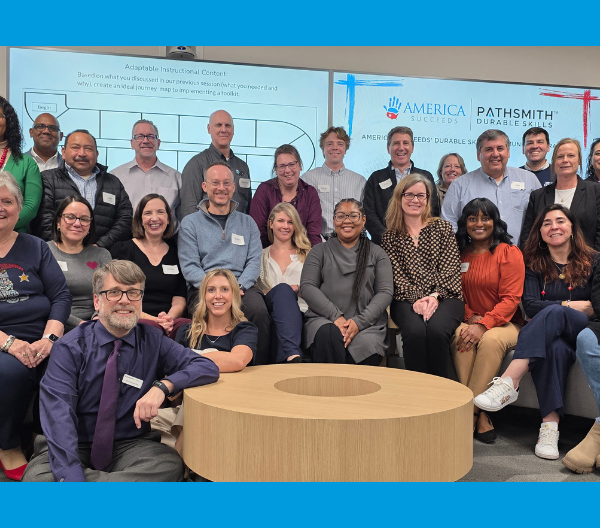
As more young adults are exploring postsecondary opportunities other than traditional college routes, alternative professional pathways and credentialing programs have exploded. These up-skilling and credentialing programs allow an expanded group of learners to pursue individualized career paths at affordable costs and with lower barriers to entry. In addition, they provide adults who are seeking a career change with options to efficiently build skills that were not available in the past.
Among other factors, the explosion of alternative professional skill-building pathways have pushed businesses to increasingly prioritize skills over degrees in the hiring process. Employers struggle to find qualified candidates for job openings, due in part to the skills gap, making them more open to removing degree requirements for jobs.
According to a report from ASA and JFF, two-thirds of employers are now saying they want to hire from professional pathways more often. Though the skills-based hiring movement is well under way and professional pathways are helping to push it forward, many employers still express hesitancy about removing degree requirements.
Moving forwards, it will be imperative that we create policies and support initiatives to build even better professional pathways and alternative skilling routes. Doing so will never make a college degree obsolete, but it will allow a larger and more inclusive workforce to access the opportunities that were previously out of reach, and in doing so, provide a higher-skill labor pool for employers to hire from, creating positive outcomes for workers and employers.
Ready to learn more? Read the full No Worker Left Behind report, out now.




